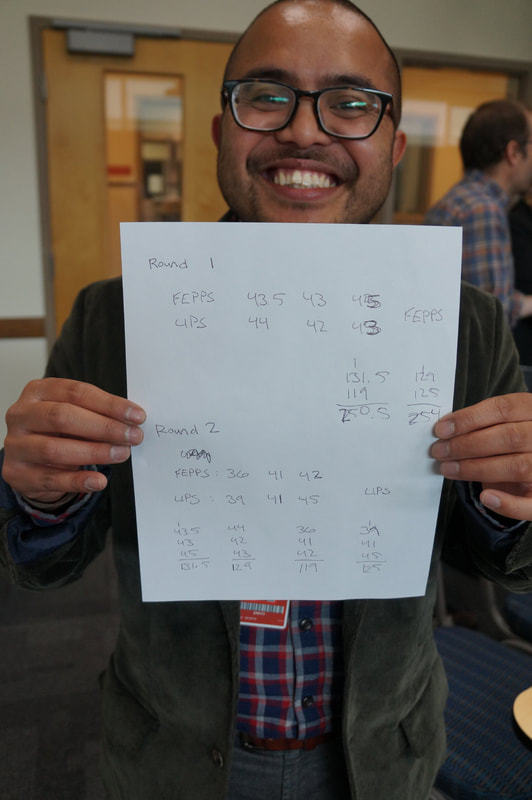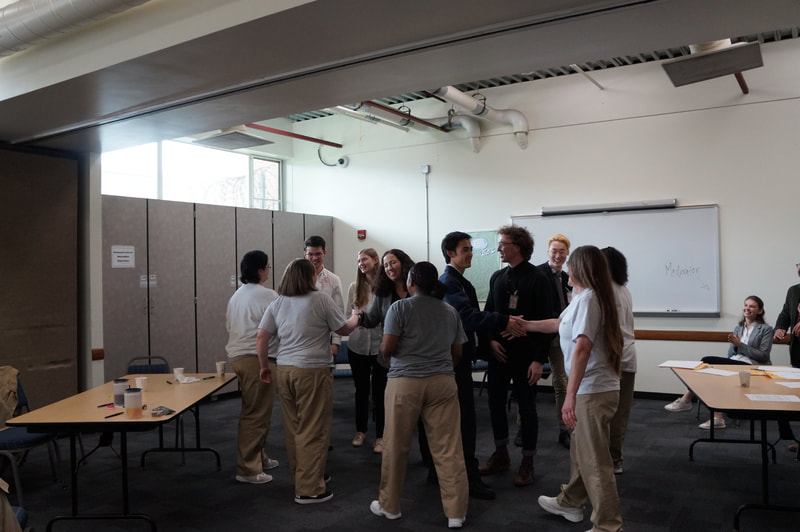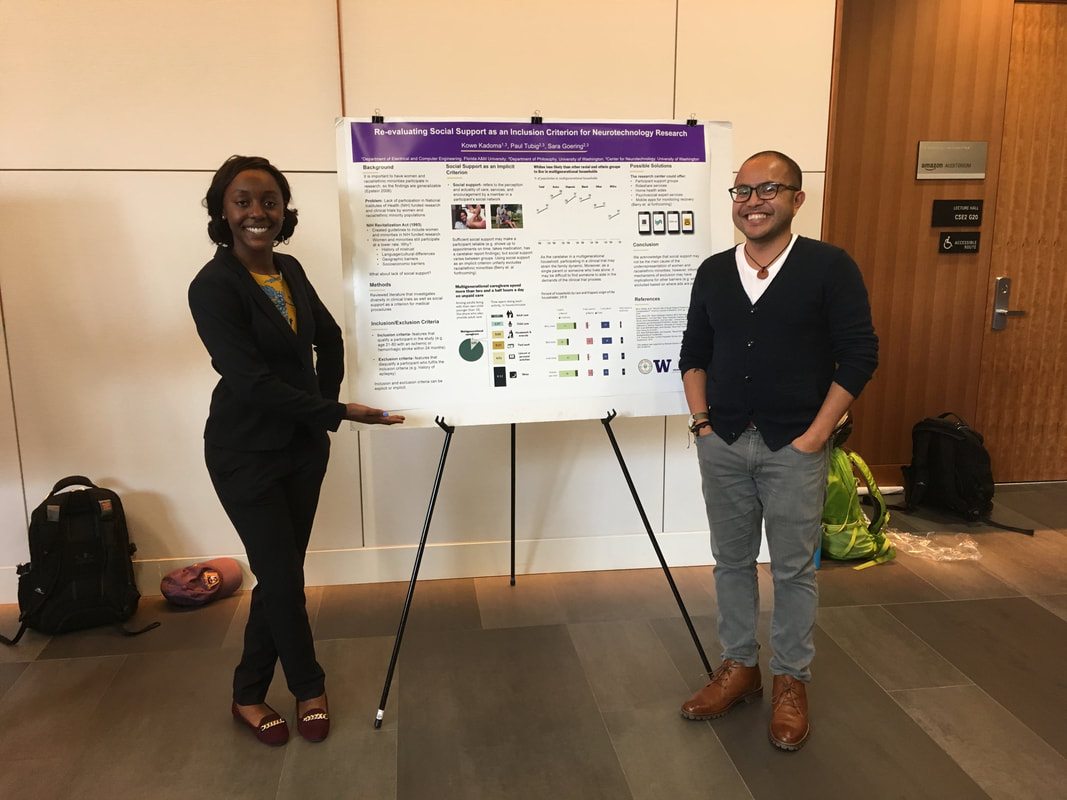 Congratulations to Kowe Kadoma from Florida A&M University for completing the Center for Neurotechnology's Research Experience for Undergraduates (REU) program at the University of Washington! The UW Center for Neurotechnology sponsors a 10-week Research Experience for Undergraduates (REU) program during the summer. This program provides undergraduate students with opportunities to work on research projects with specialists in the CNT. Undergraduate students selected to the program are placed in a lab of their choice and paired with a CNT member with a similar area of study who can support their research endeavors. This summer, I served as Kowe's advisor on her neuroethics project entitled “Reconsidering Lack of Social Support as Exclusion Criterion for Neurotechnology Research Participation.” Her aim was to interrogate the moral appropriateness of using lack of social support to exclude candidates from research participation, which she found to be seriously problematic. Social support is a criterion that is often used to determine the eligibility of candidates who seek to participate in experimental trials. Kowe argued that it is unjust to use social support as a criterion for exclusion in non-therapeutic, clinical trials. Although excluding potential participants on the basis of social support is not denying them access to life-saving treatment, excluding potential participants because of their social support (or lack thereof) would narrow the generalizability of the findings, especially when the criterion would exclude indirectly historically vulnerable populations. This could lead to persistent health disparities and development of therapies that are not effective to all people. 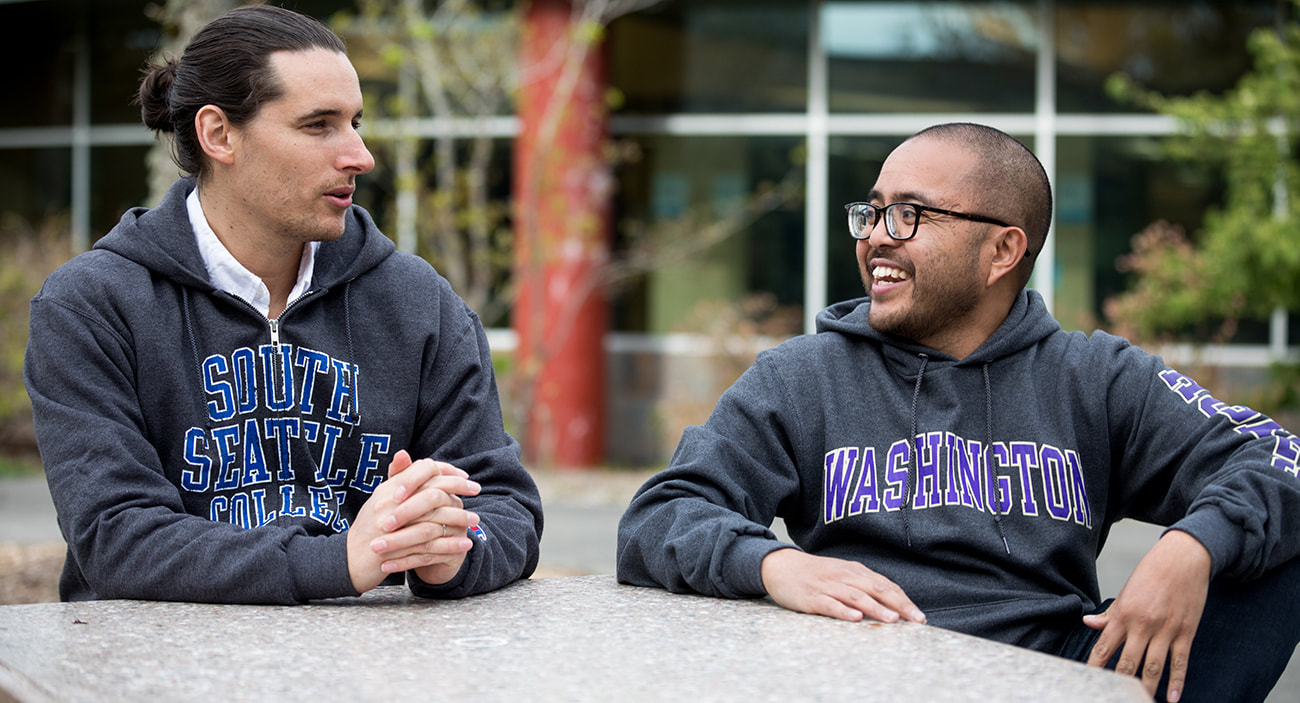 For the 2018-2019 academic year, I was fortunate to be one of the doctoral students selected to be a part of the Mellon Fellowship for Reaching New Publics in the Humanities. This fellowship program is funded through the UW Simpson Center for the Humanities and is part of the broader mission to extend teaching and scholarship in the humanities to broader publics, especially the historically vulnerable and marginalized. The aim of the Mellon Fellowship for Reaching New Publics in the Humanities is for doctoral students to learn the invaluable role of two-year colleges in higher education. Fifty percent of University of Washington graduating majors in the humanities, broadly defined, are transfer students from two-year colleges. Also, two-year colleges nearly serve half of all undergraduates, including fifty percent of undergraduates of color and in increasing proportion of low-income students. Yet the the value of two-year colleges and how they are intertwined with research universities are often overlooked. Each Mellon Fellow for Reaching New Publics was matched with a community college faculty member in a shared discipline. The point was to shadow them, regularly attending their classrooms and faculty meetings to gain a better understanding of the campus, the students, the pedagogical approaches, and the role and responsibilities of the faculty. I was immediately drawn to the Reaching New Publics program, given my own history as a community college student who transferred to a research university. My mentor was Anthony Ferrucci, a philosophy professor at South Seattle College and Green River College and a former colleague in the UW . During 2018-2019 academic year, I regularly visited Green River College and South Seattle College. We also attended the Teaching Hub sessions at the 2019 APA Central Division Meeting and APA Pacific Division Meeting. During my year-long tenure as a Mellon Fellow for Reaching New Publics, I contributed to two posts to the Simpson Center's Reimagining the PhD blog. My first post, What Kind of Academics Should We Be? grappled with the under-appreciation and stigma of community colleges and its devaluation as a desirable career choice after the PhD program. My second post, Transfer Students and the Problem of Being 'Outliers' in Universities, was about the common challenges of being a transfer student and some of the ways faculty in community colleges and four-year institutions can make the transition process for incoming transfer students easier. Both posts are derived from my own experiences and thoughts surrounding community colleges as I progress forward in the PhD program as an educator and aspiring academic. My experience as a Mellon Fellow for Reaching New Publics was also part on an article in the University of Washington's Perspectives newsletter. 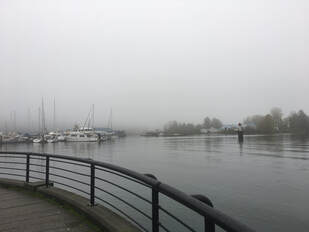 I was fortunate to complete the 2018-2019 APA circuit and attend the APA Pacific Division Meeting 2019 in Vancouver, British Colombia. I provided commentary on a very interesting paper by Jason Chen from St. Louis University (and soon to be the Ohio State University). Entitled, "Objective Quality of Life and Objective List Theory of Well-Being," Jason advances a medical conception of objective quality of life (QOL) that is derived from an objective list theory of wellbeing. Chen is responding to the legitimate need to develop a medical conception of QOL that can help us determine whether certain medical interventions ought to be performed on infants. It was a pleasure to read Jason's paper, meet him in person, and participate in a very important discourse in medical ethics. An intercollegiate ethics bowl took place inside the Washington Correction Center for Women (WCCW). The college ethics bowl team from the University of Puget Sound (UPS) competed with the college ethics bowl team comprised of incarcerated college students residing in WCCW and part of the Freedom Education Project Puget Sound (FEPPS) in-prison college program. This project was inspired by the work of the UC Santa Cruz Center for Public Philosophy and spearheaded by Kyle Robertson to bring the ethics bowl to San Quentin State Prison. The ethics bowl at WCCW is the first-ever ethics bowl to be held at a women's prison.
The motivation to organize an ethics bowl at WCCW stems from FEPPS students' desires to do more philosophy. Currently, we are only permitted to teach Introduction to Philosophy as a college-accredited course, A common refrain from students after a course was complete is whether we'll be offering more philosophy courses. One of my past students asked if it was possible to have some debate-style event take place in WCCW as a way to participate in philosophical discourse. This request inspired the idea of organizing an ethics bowl inside WCCW. Although the ethics bowl is styled as a competition with points and eventual victor, it differs from a traditional debate competition in that it is more of a collaborative endeavor to bring people from different histories and social positions together and have constructive dialogue on very important ethical and sociopolitical dilemmas. The ethics bowl came to fruition through my collaboration with FEPPS, UPS philosophy professor Ariela Tubert, support from colleagues and faculty in the UW Department of Philosophy, and generous funding from the UW Department of Philosophy's Melvin Rader Summer Grant for Innovative Philosophical Projects. The FEPPS ethics bowl team, comprised of five wonderful and inspiring students residing in WCCW, engaged with the UPS ethics bowl team. The ethics bowl was comprised of two rounds and they wrestled with pressing questions, such as whether China's social credit system is morally justified, is bringing back extinct species by means of genetic technologies a morally worthwhile endeavor, and does a terminally ill child have a right to participate in euthanasia? With the round split 1-1, the judges went to the overall point total and with 254 to 250.5, the UPS team won the inaugural intercollegiate ethics bowl at WCCW. It was amazing to witness how all the hard work from the organizers, coaches, and especially students culminated in a very positive and meaningful event. In preparation for the event, the FEPPS students met with me weekly for the past six months to study moral theory and examine the ethics bowl cases. They were dedicated, passionate, and thoughtful. It was a pleasure to be a coach for the FEPPS ethics bowl team. Due to the positive reception, excitement, student support, and success of the inaugural ethics bowl, another ethics bowl inside WCCW is already in the works for 2020. To read more on this event, click on the following links:
|
Archives
August 2019
Categories |
